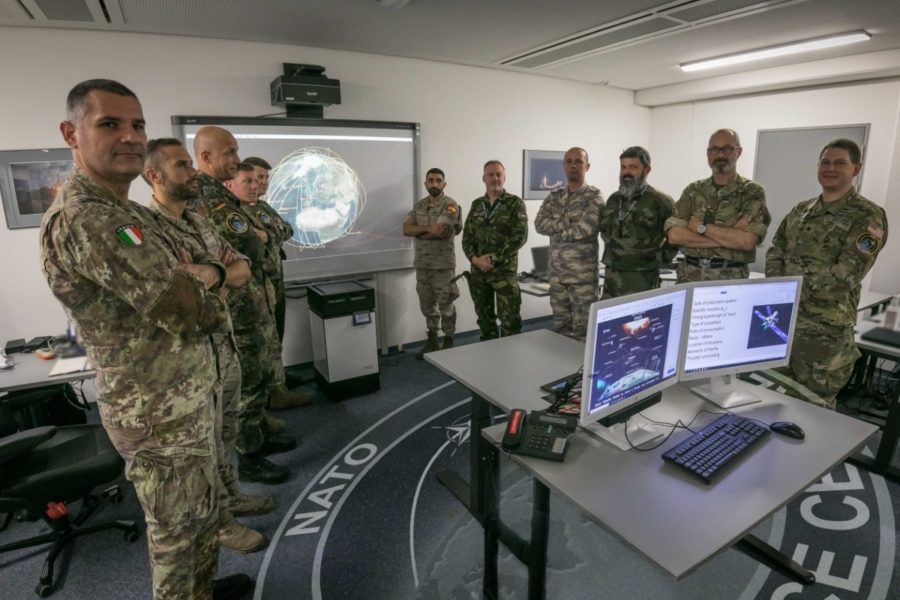NATO isn’t looking to develop any space capabilities of its own, but it does want to bolster its space support for operations and missions. Any space-based attack on an ally could trigger the alliance’s collective defense policy, it said in its first public space policy document released Jan. 17.
NATO’s newly released “overarching” space policy follows the alliance’s adoption of a previous space policy in 2019, but details of that policy weren’t released publicly.
The new document pledges that NATO “is not aiming to become an autonomous space actor.” But given the increasingly crowded and contested nature of the domain, the alliance “will seek to complement and add value to the work of Allies and to engage with other relevant international organizations, as appropriate, avoiding unnecessary duplication of effort.”
In particular, the policy outlines four key roles for NATO to play in the space domain:
- Integrating space and space-related considerations into the delivery of NATO’s core tasks;
- Serving as a forum for political-military consultations and information-sharing on relevant deterrence and defense-related space developments;
- Ensuring effective provision of space support and effects to the Alliance’s operations, missions, and other activities;
- Facilitating the development of compatibility and interoperability between Allies’ space services, products, and capabilities.
Those key roles will be supported by nine “lines of effort,” ranging from space support to space domain awareness to training and exercises.
The issue of space support is particularly important, the policy states, as it is needed for everything from space situational awareness to intelligence, surveillance, and reconnaissance; communications to weather monitoring; and missile warning to position, navigation, and timing. In order to fulfill those missions, NATO will identify and develop mechanisms to define its space support needs, the policy states.
“Allies’ capabilities, and, if necessary, trusted commercial service providers should be leveraged to meet these requirements in the most secure, efficient, effective, and transparent manner,” the policy adds.
Other lines of effort are centered around a push that the U.S. Department of Defense has repeatedly endorsed—the adoption of an international set of rules or norms for operating in space. Even more fundamentally, the policy calls for NATO to “develop a common understanding of concepts, such as the role of space in crisis or conflict.”
But even while the policy states that free access, exploration, and peaceful use of space are “in the common interest of all nations,” it acknowledges that potential adversaries are developing capabilities to attack space assets, such as anti-satellite missiles and in-orbit weapons.
Such attacks would “present a clear challenge to the security of the Alliance … and could be as harmful to modern societies as a conventional attack,” the policy states, adding that those attacks could lead to the invocation of NATO’s Article 5, under which members of the alliance commit to collectively defend each other and to respond to armed attacks.
The policy does not, however, definitively say what attacks in space will trigger Article 5, instead stating that those decisions will be made on a case-by-case basis by the North Atlantic Council, the alliance’s principal political decision-making body.
The council will also be tasked with considering “a range of potential options … across the conflict spectrum to deter and defend against threats to or attacks on Allies’ space systems.”
Interoperability and cooperation are recurring themes throughout the policy as well, with NATO calling on member nations to share best practices with each other, coordinate their capabilities and information-sharing, and include space considerations in their military exercises.
